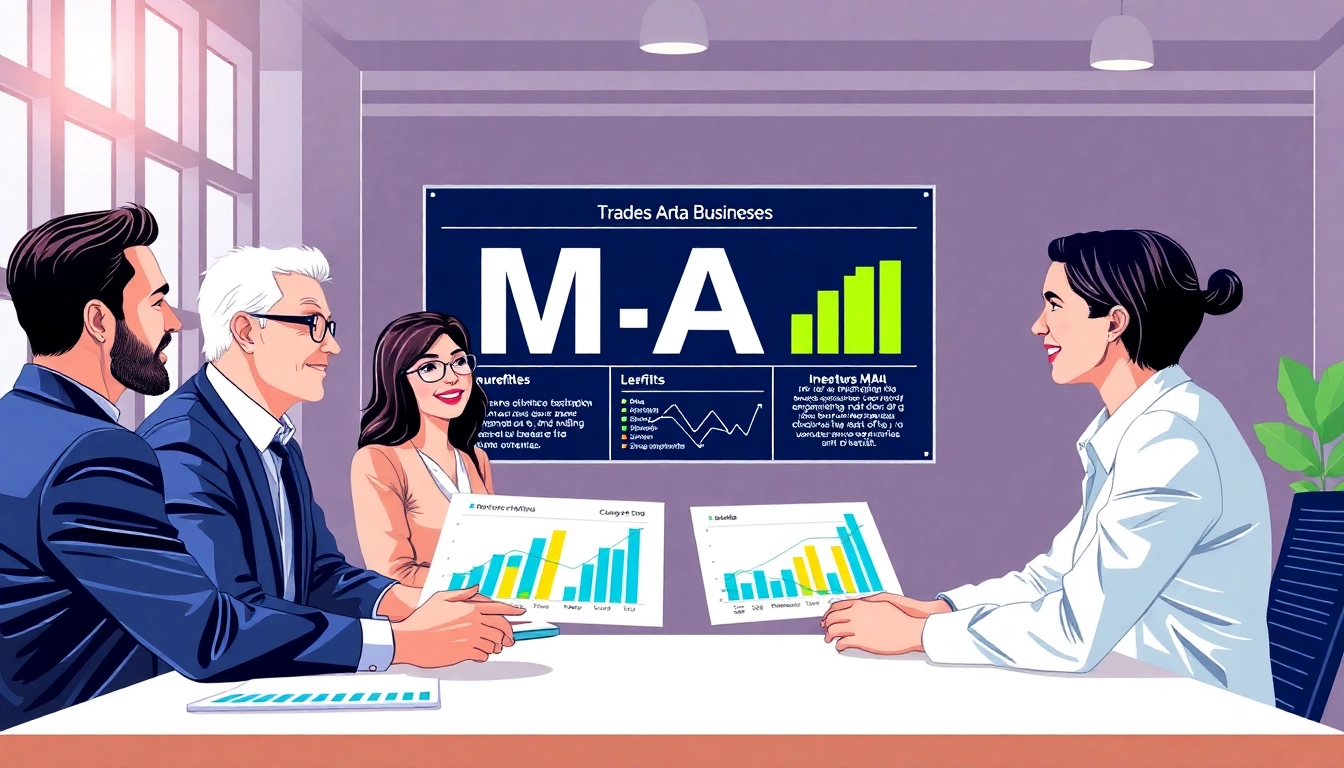Understanding M&A Advisory for Trades Businesses
The Role of M&A Advisors
Mergers and Acquisitions (M&A) advisors serve a vital role in the world of business transactions, acting as intermediaries between buyers and sellers. Their expertise is especially significant for trades businesses, where deals often involve intricate details that require specialized knowledge. M&A advisors help businesses navigate complex transactions, providing valuable insights and strategic guidance. From valuation to negotiation, these advisors ensure that all aspects of a deal are thoroughly managed, maximizing outcomes for their clients.
Why Trades Businesses Need Specialized Advisors
The trades sector encompasses a wide range of industries, including construction, plumbing, electrical services, and HVAC. Each of these fields has its unique challenges and market dynamics, making the need for specialized M&A advisors crucial. A successful M&A transaction in trades often hinges on understanding specific market sentiments, regulatory considerations, and operational integrations. Specialized advisors have the industry insights necessary to mitigate risks and exploit opportunities effectively. This is why engaging with the best M&A advisors for trades businesses can significantly impact the success of any deal.
Identifying Key Benefits of M&A Advisory Services
When trades businesses engage M&A advisors, they benefit from a plethora of services designed to enhance transaction value. Key advantages include:
- Expert Valuation: M&A advisors offer precise business valuations, crucial for setting appropriate asking prices and negotiating effectively.
- Market Insights: Advisors possess up-to-date knowledge of market trends, helping businesses identify optimal sale windows or acquisition opportunities.
- Negotiation Skills: Experienced advisors excel in negotiations, ensuring that clients achieve the best possible terms.
- Due Diligence Support: Advisors also help in conducting thorough due diligence to identify potential issues that may affect a deal.
- Network of Contacts: M&A advisors typically have extensive networks that can facilitate introductions to potential buyers or sellers.
How to Evaluate M&A Advisors for Trades Businesses
Assessing Experience and Expertise
When considering M&A advisors, businesses should look for seasoned professionals with proven experience in the trades sector. Important considerations include:
- Industry Experience: Identify advisors who have worked specifically with trades businesses. Their familiarity with industry-specific challenges will be essential.
- Track Record: Look for a history of successful transactions relevant to your business size and type.
- Client Testimonials: Seek references and case studies from past clients to gauge satisfaction and effectiveness.
Understanding Fee Structures
M&A advisory fees can vary significantly based on the complexity of the transaction and the advisor’s expertise. Common structures include:
- Retainer Fees: Some advisors charge a retainer fee before any work begins, covering initial consultations and assessments.
- Success Fees: Typically, a percentage of the deal value, success fees are paid only upon the successful completion of a transaction.
- Hourly Rates: Some advisors charge by the hour for their services, which may be preferred for smaller transactions or advisory engagements.
Key Questions to Ask Potential Advisors
Before finalizing your choice of M&A advisor, it’s essential to ask relevant questions to ensure compatibility and capability:
- What experience do you have with trades businesses?
- Can you provide examples of similar transactions you have facilitated?
- What is your fee structure and what does it include?
- How will you approach our transaction strategically?
- What processes do you have in place to ensure confidentiality and security?
Top Characteristics of the Best M&A Advisors
Industry Knowledge and Network
The best M&A advisors possess extensive knowledge of the trades industry. This includes understanding the latest market trends, regulatory environments, and technological advancements that can affect valuations and negotiations. Their network of contacts can also open doors for greater opportunities.
Proven Track Record in Similar Transactions
Successful M&A advisors have documented results in completing transactions similar to yours. A proven track record indicates that an advisor can deliver results under various circumstances and challenges.
Client-Centric Approach to Dealmaking
Advisors that prioritize the needs and goals of their clients tend to achieve better results in M&A transactions. A client-centric approach ensures that the advisor constantly aligns their strategies with the client’s vision and objectives, leading to more successful outcomes.
Case Studies: Successful M&A Transactions in the Trades Sector
Overview of Notable Deals
Numerous successful M&A transactions have occurred in the trades sector, exemplifying effective strategies employed by M&A advisors:
- Example 1: A leading plumbing contractor was acquired by a large national firm, where the M&A advisor facilitated the deal by highlighting the contractor’s exceptional customer service reputation and loyal client base, which were key factors in obtaining a premium deal value.
- Example 2: A smaller electrical services company successfully merged with a larger competitor to expand the service area and reduce operational costs. The advisor played a pivotal role in negotiating favorable terms, ensuring a smooth transition of leadership.
Lessons Learned from Successful Transactions
Learning from successful case studies can provide valuable insights into best practices for trades businesses considering M&A:
- The importance of due diligence: Thoroughly understanding the target company’s operations, financials, and market position is vital to mitigate risks.
- Clear communication: Maintaining clarity and openness between all parties throughout a transaction can prevent misunderstandings and foster trust.
- Focus on compatibility: Consideration of company culture during the selection process can lead to smoother integrations post-transaction.
How Advisors Leveraged Market Trends
Effective M&A advisors continuously monitor market trends to provide strategic insights. For instance, during periods of economic growth, they may encourage clients to pursue aggressive acquisition strategies, whereas in downturns, they could suggest focusing on enhancing operational efficiencies and considering divestitures. This adaptability and market attunement is crucial for achieving successful M&A outcomes in the trades sector.
Future Trends in M&A for Trades Businesses
Emerging Market Forces and Opportunities
As the trades sector evolves, several key trends will shape the future of M&A:
- Technological Integration: The increasing reliance on technology in the trades, such as smart home systems and IoT devices, opens new avenues for mergers and acquisitions.
- Sustainability Practices: As environmental regulations become stricter, trades businesses that integrate sustainable practices may become highly desirable acquisition targets.
- Shift in Workforce Dynamics: The ongoing talent shortage in skilled trades may lead companies towards consolidation strategies to pool resources and expertise.
The Digital Transformation Impacting M&A
Digital transformation influences nearly every aspect of business, and M&A in the trades sector is no exception. Companies are increasingly expected to be tech-savvy, which necessitates an evaluation of digital capability during transactions. M&A advisors who understand digital trends can provide essential insights, ensuring clients invest in technology-forward companies that enhance their competitive stance.
Preparing for the Next Wave of Dealmaking
To capitalize on emerging trends, trades businesses should proactively prepare for future M&A opportunities. This can involve:
- Continuous Market Research: Stay informed about evolving industry trends, competitor activities, and technological advancements.
- Strengthening Operational Efficiency: Streamlining internal processes will enhance attractiveness to potential buyers.
- Building Relationships: Invest time in developing robust relationships with M&A advisors and industry peers to foster opportunities for future collaboration.




